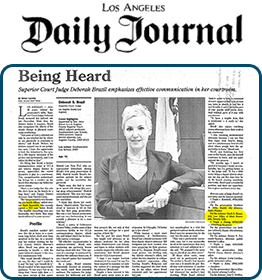If somebody is accused of driving under the influence and they submit to a blood draw, then that would be the same as if they had submitted to a breath test. If someone does a breath or blood test and it comes back with a blood alcohol level that’s a 0.08 or above, they would be treated very similarly. There are other things that you could do to negotiate a case but they would be similar if the numbers are both accurate: if a breath test is considered accurate and the blood test is considered accurate.
There is a lot more paperwork and room for error on blood draws. If someone refuses to submit to a test and it’s deemed refusal, they have extra penalties. The Department of Motor Vehicles will often suspend your license for one year or more if the person has multiple offenses, so there will be no driving for a year, which is much more severe than a 0.08 or above DMV action. In court, many prosecutors will be seeking actual jail time if it’s a refusal case. So, the penalties for a refusal can be worse, but on a breath or a blood case, many times prosecutors are looking for the same penalties.
What Is the Most Important Thing for a Client to Know in Regards to a Blood Draw Case?
The most important thing for somebody who is accused of driving under the influence to know about blood cases is that there is hope. There are defensible cases, and just because the blood result comes back with at a certain number doesn’t mean that that is true. It doesn’t mean that that number is trustworthy or reliable.
In many cases, it may be an accurate number. Someone may get a blood result back, it may be a 0.12 or something like that and that can be honestly what the person’s blood alcohol level was. Most of the time, if the tests are done correctly, they are going to be accurate but it’s important to keep in mind that human beings are ultimately responsible for the blood draw, for the transportation and maintenance of the blood and, ultimately, the analysis.
It’s not an instrument doing it on its own; it’s not a robot and people can and do make mistakes. Blood cases can be defended. You can have significant errors in blood analysis. There is scientific literature and studies that will show that somebody who has consumed very moderate levels of alcohol – one or two drinks – may have a blood test result that comes back showing that there may be two, three or four times the legal limit. That could certainly be an error, so it’s important to know that these cases can be reviewed and defended.
For more information on Typical Penalties in a Blood Draw Case, a free initial consultation is your next best step. Get the information and legal answers you’re seeking by calling (310) 424-3145 today.






 Personal Attention
Personal Attention Every criminal case is unique and no attorney can guarantee the outcome of a case. The information on this site is legal advertising and for general information only. Using this site, requesting books, information, consultations or communicating with Attorney Rosenfeld through its site does not form an attorney/client relationship.
Every criminal case is unique and no attorney can guarantee the outcome of a case. The information on this site is legal advertising and for general information only. Using this site, requesting books, information, consultations or communicating with Attorney Rosenfeld through its site does not form an attorney/client relationship.








